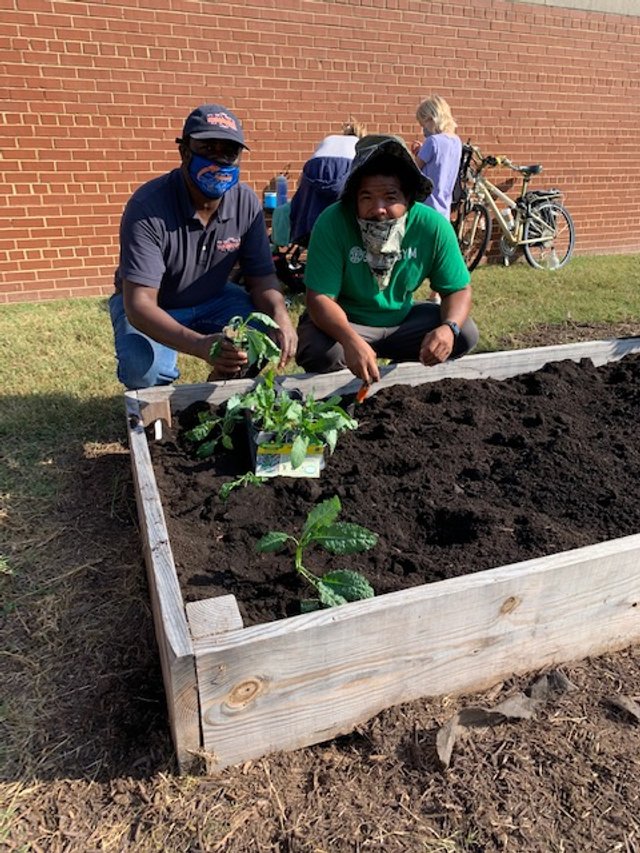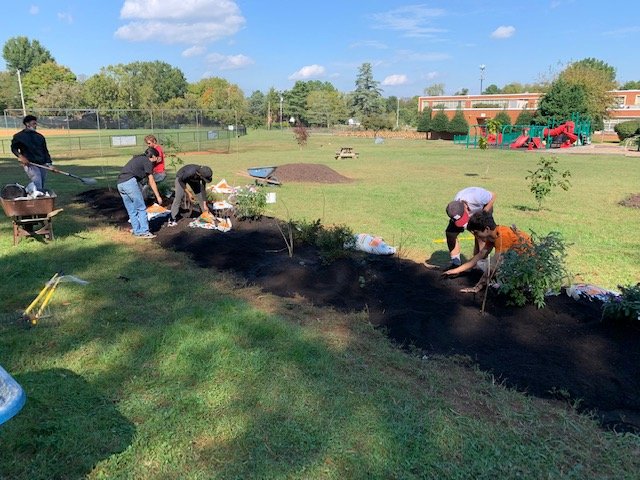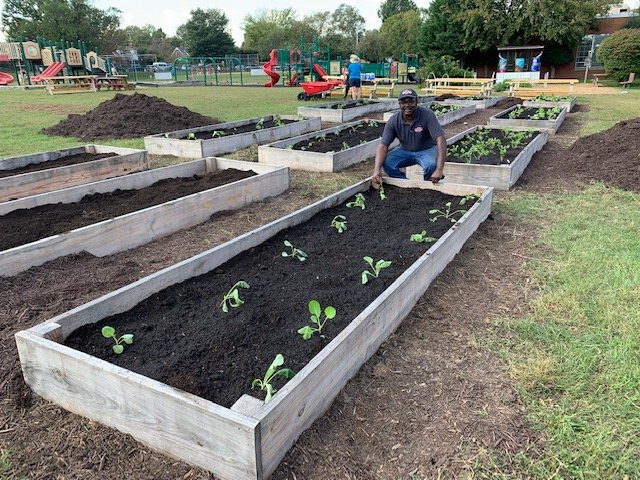VSU partners with schools and churches to connect families to food through communal horticulture
VSU Sustainable & Urban Agriculture Specialist, Dr. Leonard Githinji, in front of raised bed garden.
Community gardens can be a great addition to any city or neighborhood. A designated green space where people who may not have access to yards or growing space can come and grow their own food and flowers. Virginia State University’s Extension Program has numerous communal garden projects across the state. Dr. Leonard Githinji, who leads the Sustainable and Urban Agriculture program at VSU and was recently appointed as a state program leader for agriculture with Virginia Cooperative Extension, says the top goals of community agriculture are to “address food insecurity, encourage healthy eating, and provide exercise opportunities.”
In Richmond, Githinji has seen significant impacts by working with churches to establish successful community gardens to address food insecurity. At Second Baptist Church on Broad Rock Blvd. in Richmond, volunteers have worked hard to develop a successful farm outside the church. They grow crops and hold a farmer’s market to sell their produce. Githinji says, “Nothing is as exciting as seeing people increase their consumption of fresh vegetables and fruits, especially when they’ve grown their own fresh foods.”
Community gardens can be most successful when they impact the youngest in their communities. By bringing communal garden programs into schools, VSU is seeing an enormous impact.
Githinji is seeing great success with a school program in Richmond, with a community gardening program called “no kids left inside.” Students spend time in the outdoors, learn about plants, soil health, and food production. “These kids are learning and asking questions,” says Githinji, “and we hope some of these kids will choose to be scientists and work in agriculture.” With the support of teachers and top administrators, the project is very successful.
“Starting with younger folks is the way to go.” Githinji says. “Kids go and talk to their parents about what they’re doing.” And the benefits go beyond providing education and access to fresh foods. “You can change people’s perception of choices,” he says. When children have access to programs that get them moving and spending time outside, they learn another way to stay healthy through movement.
At Salem’s Church Elementary School in Chesterfield, children have access to raised garden beds. Here, they learn about soil, planting, and how to maintain plants and gardens. As this generation grows with this knowledge, they will be able to continue the cycle of growing fresh foods, and teaching others how to do the same.
And, the word is spreading. Githinji recently received an email from the principal at John B. Cary Elementary School, who wants to connect VSU with the Lewis Ginter Botanical Gardens to partner on more projects. The principal wrote, “They heard about our work together and are interested in talking with you. This just seems like a wonderful opportunity to get students college and career ready at VSU Ag.”
At this elementary school’s garden parcel, community members come to watch what VSU and the school’s students are doing. Githinji says he receives regular emails and phone calls from community members who are grateful to see the project at that school. “We are here to serve people in the Commonwealth of Virginia,” he added. “We provide educational resources so schools and churches can continue on their own indefinitely.”




